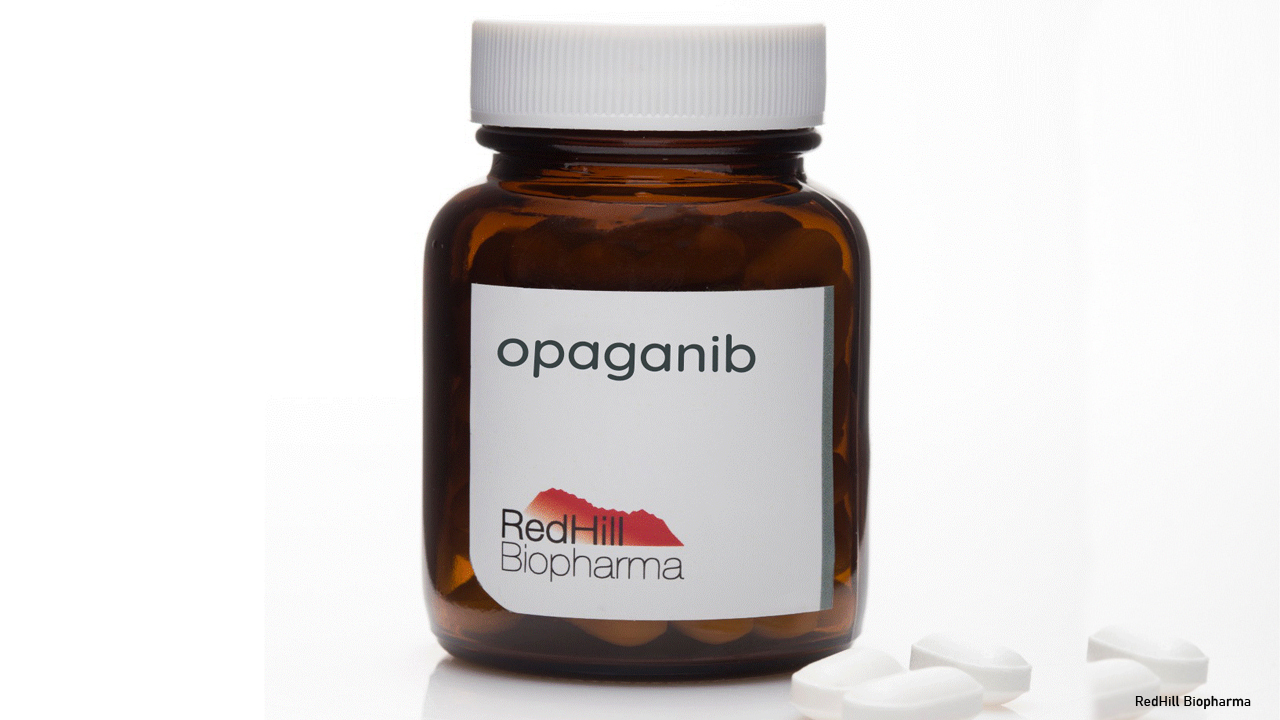RedHill Biopharma Ltd., a speciality biopharmaceutical company, recently announced that preliminary top-line data from its U.S. Phase 2 study with orally-administered opaganib (Yeliva, ABC294640) in patients hospitalized with COVID-19 pneumonia demonstrated positive safety and efficacy signals.
The randomized, double-blind, placebo-controlled U.S. Phase 2 proof-of-concept study with opaganib enrolled 40 patients requiring oxygen support. The study was not powered for statistical significance and aimed to evaluate the safety and identify preliminary signs of activity. Patients in the study were randomized at a 1:1 ratio to receive either opaganib or placebo on top of standard-of-care (SoC) and were followed up for up to 42 days of post-treatment initiation.
Top-line results from the study found opaganib to be safe, with no material safety differences between the opaganib and placebo treatment arms. Overall, fewer patients suffered from serious adverse events (SAEs) in the opaganib treatment arm than in the placebo arm. In this small sample size, there were few events of intubation or fatality and these were balanced between the two arms.
The opaganib-treated arm demonstrated a consistent trend of greater improvement in reducing oxygen requirement by end of treatment on Day 14 across key primary and secondary efficacy outcomes, correlating with clinical improvement as defined by the World Health Organization ordinal scale:
- A greater improvement in the proportion of patients reaching room air and no longer requiring oxygen support by Day 14 vs. the control arm (52.6% vs. 22.2%).
- A greater improvement in the proportion of patients with 50% reduction in supplemental oxygen by day 14 vs. the control arm (89.5% vs. 66.7%).
- A higher proportion of patients discharged by Day 14 vs. the control arm (73.7% vs. 55.6%).
- A greater reduction from baseline of the median total oxygen requirement (AUC) over 14 days vs. the control arm (68.0% vs. 46.7%).
Full analysis of the data, including viral and inflammatory biomarker analyses, baseline risk factors and SoC background therapy stratifications, is expected in the coming weeks. The Company will provide the data for peer review when available.
"We are pleased with these encouraging top-line results from our exploratory Phase 2 study which confirm opaganib's safety and demonstrate promising signals of activity when treating patients with COVID-19 and who require oxygen support. These preliminary results support our ongoing global Phase 2/3 study in severe COVID-19 pneumonia, which is expected to read out in Q1/2021. We continue to work diligently to compile a robust data set to support potential filing of global emergency use applications," said Mark L. Levitt, MD, PhD., Medical Director at RedHill.
Gilead Raday, RedHill's Chief Operating Officer, added: "Opaganib has a unique dual mode of action that is both anti-inflammatory and antiviral – acting on both the cause and the effects of COVID-19. Opaganib targets sphingosine kinase-2, a human cell component involved in viral replication and not the virus itself. The mounting evidence of new SARS-CoV-2 mutations emerging globally underscores the importance of this unique mechanism, which potentially minimizes the risk of viral resistance to therapy. The trends of patient improvement shown by the preliminary top-line data support the ongoing Phase 2/3 study with opaganib, which will provide a more in-depth understanding of opaganib's activity."
The efficacy of opaganib in severe COVID-19 pneumonia is being further explored in an ongoing global Phase 2/3 study and is expected to report top-line data in the first quarter of 2021. This study is being conducted across approximately 30 clinical sites in several countries and is on track to enroll up to 270 patients. The study has undergone two unblinded reviews of safety data by an independent Data and Safety Monitoring Board (DSMB), with unanimous recommendations to continue the study. An interim DSMB futility analysis will be conducted in the coming weeks, evaluating data from the first 135 subjects that have reached the primary endpoint.
The top-line results from the U.S. Phase 2 study of opaganib in patients hospitalized with COVID-19 pneumonia are preliminary and were provided to the Company by an independent third-party following an initial independent analysis and remain subject to additional review and analysis. Such review and analysis may result in findings inconsistent with the results disclosed in this release and may not be replicated in future studies.

 Preliminary data from the non-powered U.S. Phase 2 study of 40 hospitalized patients shows that orally-administered opaganib was safe, with no material safety differences between opaganib and control arms
Preliminary data from the non-powered U.S. Phase 2 study of 40 hospitalized patients shows that orally-administered opaganib was safe, with no material safety differences between opaganib and control arms











.jpeg)

.jpeg)
.jpeg)
.jpeg)


.jpg)


.jpeg)
.jpeg)


.jpeg)
.jpg)




